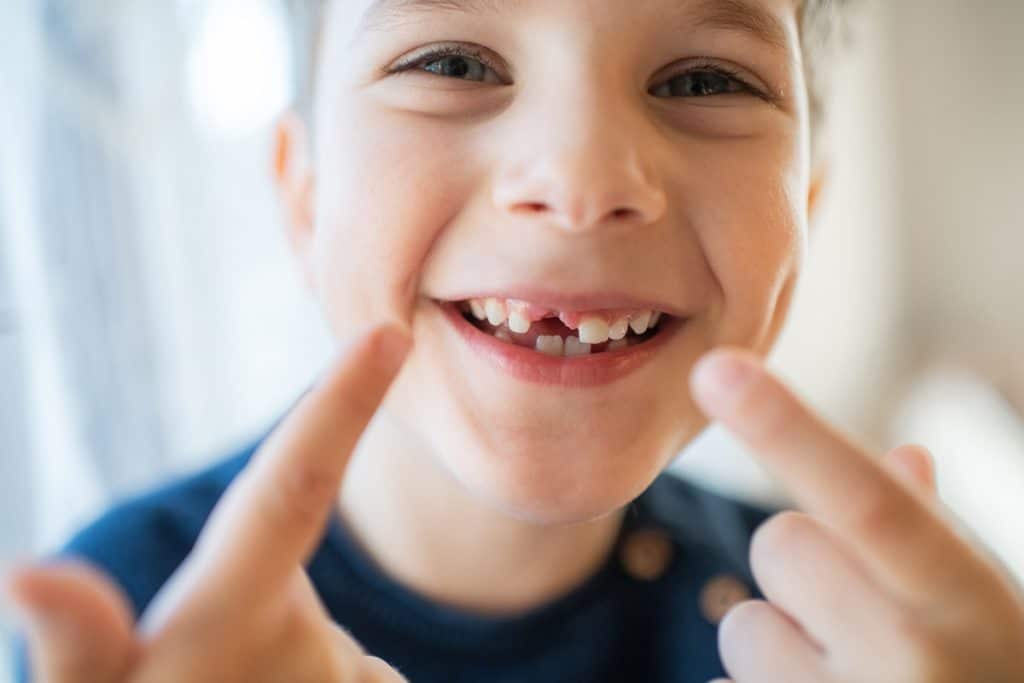Losing Baby Teeth: When Do Kids Lose Teeth and What to Expect

Watching your child grow and reach new milestones is one of the great joys of parenthood. From their first steps to their first words, each moment is precious. Another significant milestone is when they start to lose their baby teeth. This natural process can be a source of excitement and sometimes a little anxiety for both children and parents. At Rush Family Dental, we understand you have questions, and we're here to provide the clear, gentle guidance you need to navigate this phase with confidence.
In this guide, we'll walk you through everything you need to know about this important stage of your child's development. We will cover the typical timeline for losing teeth, what to expect as each tooth becomes loose, and how to best care for your child’s oral health during this transition. Our goal is to make this experience as smooth and stress-free as possible for your family.
When Do Kids Start Losing Their Baby Teeth?
One of the most common questions we hear from parents is about the timing of tooth loss. While every child is unique, there is a general timeline that most follow. Understanding this schedule can help you feel prepared and reassure your child that what they are experiencing is completely normal.
The Typical Timeline for Tooth Loss
The process of losing baby teeth, also known as primary teeth, usually begins around age six and can continue until about age twelve. This wide range means that your child's experience might differ from their friends or siblings, and that's perfectly okay.
Here is a general breakdown of when you can expect specific teeth to become loose:
- Ages 6-7: The first teeth to go are typically the lower and upper central incisors. These are the two bottom and two top front teeth. Since they are often the first teeth to erupt, it makes sense that they are the first to fall out.
- Ages 7-8: Following the central incisors, the lateral incisors—the teeth located right next to the front four—will loosen and fall out.
- Ages 9-12: The canines (the pointy teeth next to the incisors) and the first and second molars (the back teeth used for chewing) are the last to go. The canines usually fall out between ages 9 and 12, while the molars are typically lost between ages 10 and 12.
It's helpful to remember that girls often start losing their baby teeth a little earlier than boys. Again, these are just averages. It is not unusual for a child to start losing teeth as early as age five or as late as age seven. The permanent teeth growing beneath the gums are what push the baby teeth out, so the timing is largely determined by your child’s individual development.
What If My Child’s Teeth Fall Out Early or Late?
If your child loses a baby tooth before the age of four, especially due to an accident or decay, it's important to schedule a visit with us. An early loss can sometimes cause spacing issues, where neighboring teeth drift into the empty spot and block the path for the permanent tooth. We can assess the situation and determine if a space maintainer is needed.
On the other hand, if your child hasn't lost any baby teeth by the age of eight, it’s also a good idea to come in for an evaluation. In most cases, it’s just a normal delay. However, we can take a gentle X-ray to ensure the permanent teeth are developing correctly under the gums and there are no underlying issues. We are here to provide peace of mind and ensure your child's dental development is on the right track.
What to Expect When a Tooth is Loose
The sight of a wiggly tooth can be exciting, but it's natural for children to feel a bit apprehensive. Knowing what to expect and how to handle the situation can make it a positive experience. Our focus is on ensuring both you and your child feel comfortable and informed.
The Wiggling Phase
A tooth doesn't just fall out overnight. The process usually takes a few weeks, or even a couple of months, from the first wiggle to the final farewell. During this time, the root of the baby tooth is gradually dissolving as the permanent tooth pushes its way up.
It's completely normal for your child to want to wiggle the loose tooth with their tongue or finger. Encourage them to be gentle. Overly aggressive wiggling could cause pain or damage the sensitive gum tissue. Here are a few things to keep in mind:
- Slight Discomfort: Some children may experience minor gum soreness or tenderness around the loose tooth. This is normal. Eating soft foods like yogurt, applesauce, or mashed potatoes can help.
- Minor Bleeding: You might notice a small amount of bleeding around the gums, especially after wiggling. This is usually nothing to worry about.
- Let It Happen Naturally: The best approach is to let the tooth fall out on its own. It will happen when the root has dissolved enough for it to come out easily and with minimal bleeding or pain. Forcing a tooth out too early can be painful and may lead to infection.
When the Tooth Finally Falls Out
When the big day arrives, there will likely be a little bit of bleeding. This is normal and should stop quickly. Have your child rinse their mouth with a saltwater solution (a half teaspoon of salt in a cup of warm water). Then, apply a small piece of clean gauze or a damp cloth to the area and have them bite down gently for a few minutes until the bleeding stops.
The new permanent tooth may not appear right away. Sometimes, it can take several weeks or even a few months for it to break through the gums. Reassure your child that their new "grown-up" tooth is on its way. You may also notice that permanent teeth look larger, more ridged, and less white than baby teeth. This is perfectly normal and a sign of a healthy, strong adult smile in the making.
Caring for Your Child’s Smile During the Transition
Maintaining good oral hygiene is always important, but it requires special attention during the years when your child is losing baby teeth. The mix of baby teeth, permanent teeth, and gummy spaces can create new places for food and plaque to hide.
Brushing and Flossing
Gentle but thorough cleaning is key. The gum tissue around a loose tooth can be tender, so remind your child to brush carefully in that area. However, it's crucial to continue cleaning the tooth and surrounding gums to prevent plaque buildup and inflammation.
- Brushing: Ensure your child brushes twice a day for two minutes with a fluoride toothpaste. An electric toothbrush can sometimes make this easier and more effective, especially around sensitive spots.
- Flossing: As new permanent teeth erupt, they will be very close together. It's the perfect time to establish a consistent daily flossing habit. Flossing removes plaque from between the teeth where a toothbrush can't reach.
The Importance of a Healthy Diet
A balanced diet supports strong teeth and healthy gums. During this transitional period, try to limit sugary snacks and drinks, which can increase the risk of cavities in both the remaining baby teeth and the newly erupted permanent teeth. Encourage your child to eat tooth-friendly foods like:
- Crunchy fruits and vegetables (apples, carrots)
- Dairy products (cheese, yogurt)
- Lean proteins
If a tooth is particularly loose or the gums are sore, stick to softer foods to avoid discomfort.
Regular Dental Check-ups
Bringing your child for regular dental check-ups every six months is more important than ever during this time. These visits allow us to monitor their dental development, professionally clean their teeth, and apply fluoride treatments to protect their new permanent teeth. We can also identify and address any potential issues, such as crowding or impacted teeth, before they become more serious problems. We are committed to making every visit a positive, comfortable, and educational experience for your child.
The journey of losing baby teeth is a rite of passage that marks a new stage in your child's life. By providing gentle support, maintaining good oral habits, and partnering with a dental team you trust, you can ensure this transition is a healthy and happy one. At Rush Family Dental, we are honored to be a part of your family’s oral healthcare journey, offering compassionate care for patients of all ages.
Frequently Asked Questions
What should I do if my child swallows a baby tooth?
First, don't panic! This is more common than you might think and is generally harmless. A small baby tooth will simply pass through the digestive system without any issues. The tooth fairy might be a little disappointed, but your child will be perfectly fine.
Should I pull a very loose tooth?
It's almost always best to let a tooth fall out on its own. Pulling it too soon can be painful, cause unnecessary bleeding, and even risk infection if the root isn't fully dissolved. If a tooth is hanging by a thread and bothering your child, you can try having them twist it gently with clean hands. If it doesn't come out easily, it's not ready.
Rush Family Dental has provided premium dental care for patients of all ages in the greater Phoenix area since 1989. We work hard to make your visit comfortable and stress-free. We put patients first, providing all the information necessary to make the best oral healthcare decisions. If you have any questions about your child’s dental health or are ready to schedule their next visit, please schedule an appointment with us today.
